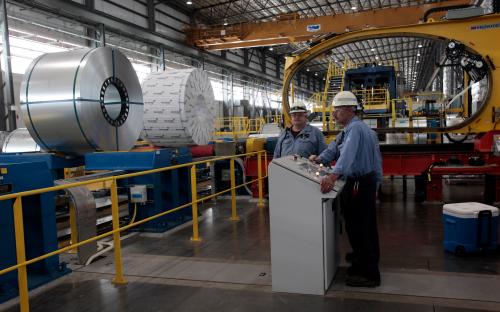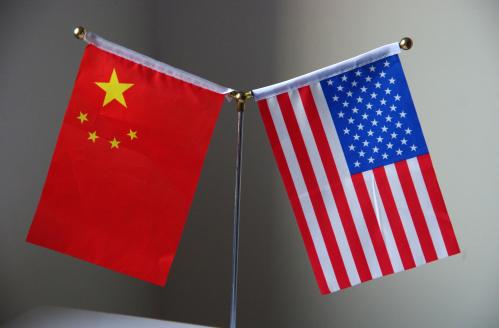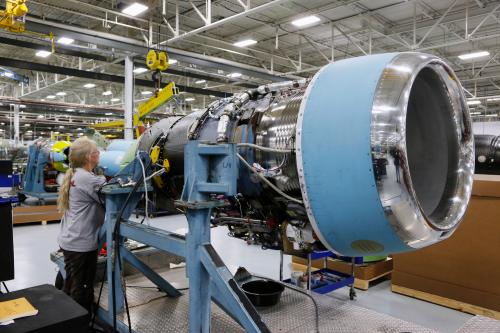On Wednesday, Dutch voters rejected—via a consultative referendum—the association agreement of the EU with Ukraine. It is a treaty between the EU, its member states, Euratom, and Ukraine that establishes a political and economic association between the parties. Only about 32 percent of eligible voters showed up, just clearing the 30 percent threshold required to make the referendum valid. Of those, 61 percent voted against the agreement. Twenty-seven EU member states have already ratified the agreement, and its economic sections came into force throughout the EU in January. But the citizens of the country that holds the rotating chair of the European Union said “nee.”
A precarious situation
The consultative referendum is a relatively new instrument, passed into Dutch law only last year after being debated for several decades. The referendum is non-binding, leaving the government free to take the voters’ “advice” or not. It’s a nation-wide direct vote, put on the ballot by a popular initiative of at least 300,000 signatures. The idea is to more closely involve citizens in political processes—but with such a low turnout, yesterday’s event calls into question whether most citizens are actually interested in that. Generally, consultative referenda are unsatisfactory to all sides: They do not bind the government (in this case, the association agreement will go ahead anyway, as many have pointed out), but do create political constraints for it.
The vote puts the Dutch government in a precarious position. Many parliamentarians had announced ahead of time that the government would respect the outcome of the referendum, and the prime minister was quick to say that the agreement cannot simply be ratified after the voters rejected it. The government can now return to Brussels—while it’s unlikely the Dutch leadership could renegotiate the agreement (since all other members already agreed), it could try to negotiate a special position for the Dutch on parts of the agreement. It could also, theoretically, ignore the referendum and adopt the agreement, but politically that’s now very difficult to do. Either way, the government in The Hague now finds itself in a very uncomfortable position.
Step up, please
Why would the Dutch oppose a preferential trade agreement between the EU and Ukraine? After all, since the downing of MH-17, The Hague has been one of the proponents of strong sanctions against Russia—and opposing the EU-Ukraine agreement is a gift to the Russians.
But the referendum wasn’t about Ukraine. In fact, the referendum’s organizers publicly declared last week in one of the nation’s leading newspapers that they could not care less about Ukraine. In their view, the EU is an undemocratic institution, run by technocrats, that does not respect the will of the people. What the leaders of the “no” campaign really sought, then was to derail an EU move and/or pressure the Netherlands leave the EU. If that means misusing a public vote, so be it.
True blame goes to those who have political responsibility but are too afraid to take it.
According to the organizers, this agreement was supposedly a first step towards EU membership for Ukraine. That, in their view, would drag the EU into further conflict with Russia, spread Ukrainian corruption throughout the continent, and cost the Dutch more than it would earn them. These are all debatable arguments, but that is probably not where the problem lies. It would be too simplistic to dismiss the “no” voters as uninformed, emotion-driven charlatans who are actually exacerbating political dilemmas. True blame goes to those who have political responsibility but are too afraid to take it because they are too afraid of next year’s parliamentary elections, facing strong populist movements on the far right and left. True blame also goes to the vast majority of people who did not vote, who take their luxury lives in the Netherlands for granted and cannot be bothered about what is going on outside their comfort zones. Interviews on television suggested that many proponents may have stayed home, hoping the 30 percent threshold would be missed. Even though they could not say so publicly, policymakers in private meetings voiced similar sentiments.
The government now has to listen to the will of the people, opponents of the accession agreement rejoiced. While the “no” voters probably do not constitute an actual majority, they have made their point—at least until politicians do their job and more citizens take responsibility. In the meantime, a state that was once a proud founding father of the European project has further marginalized itself.



Commentary
The Dutch rejection of an EU-Ukraine deal isn’t about Ukraine
April 8, 2016